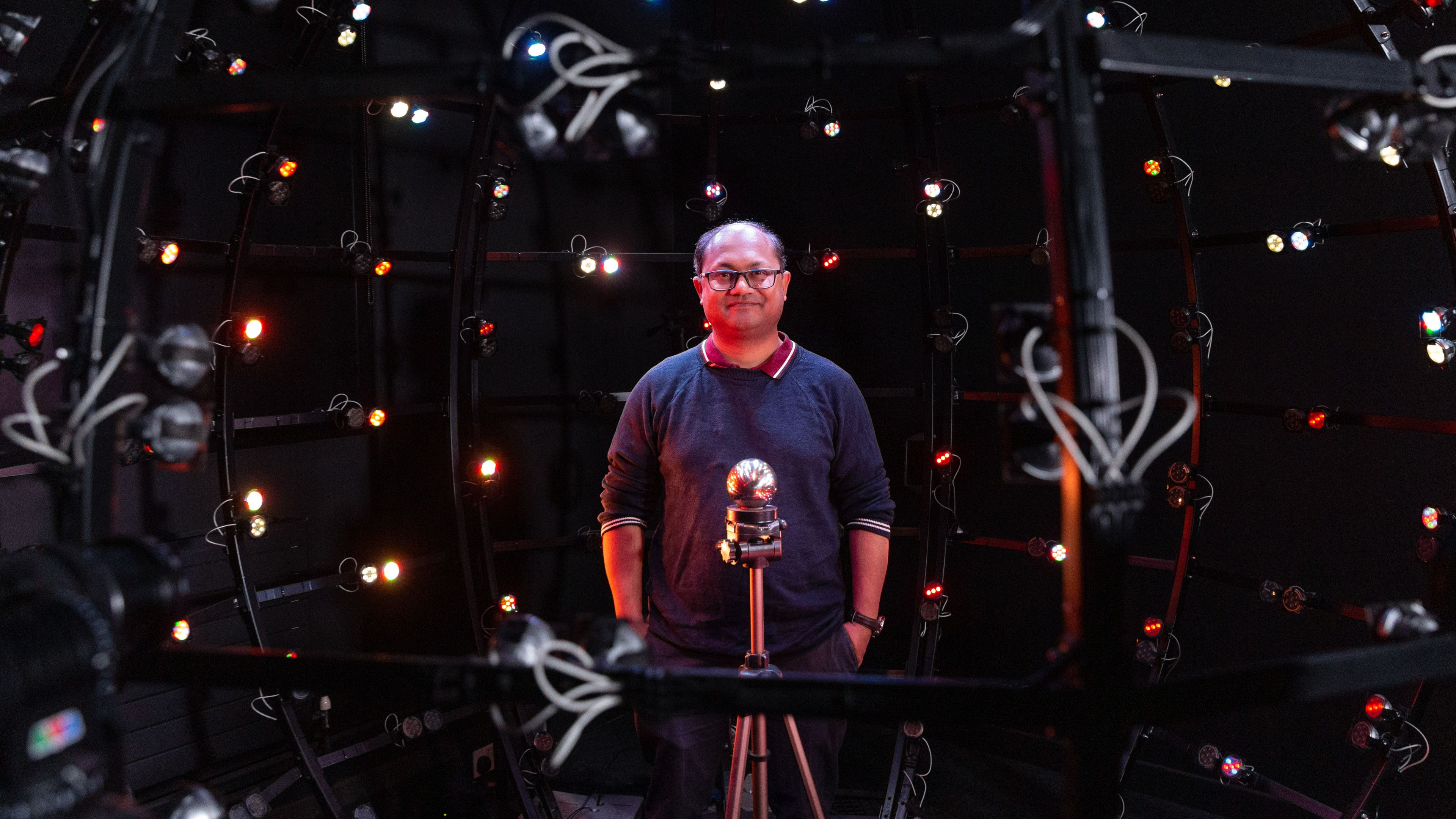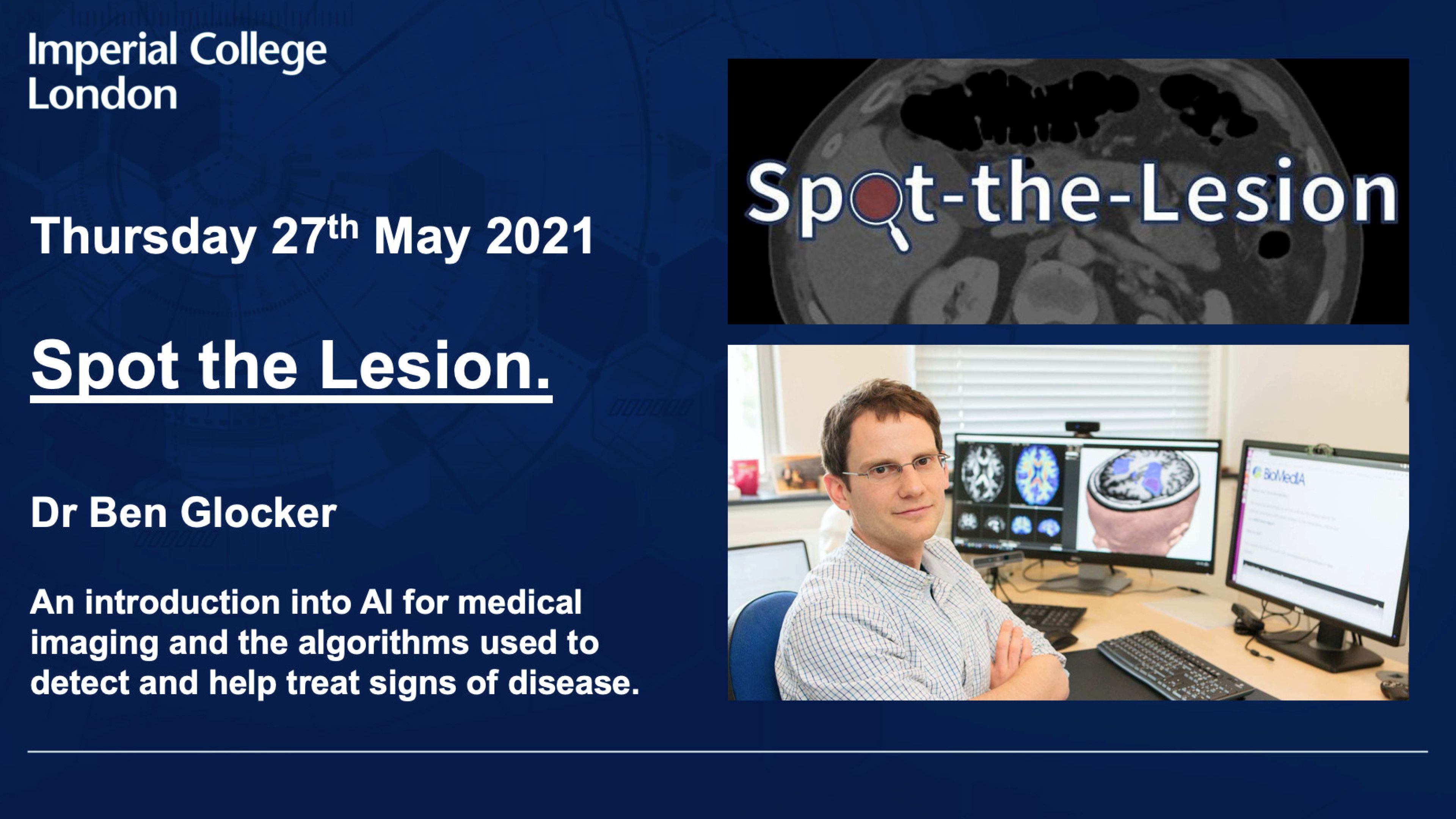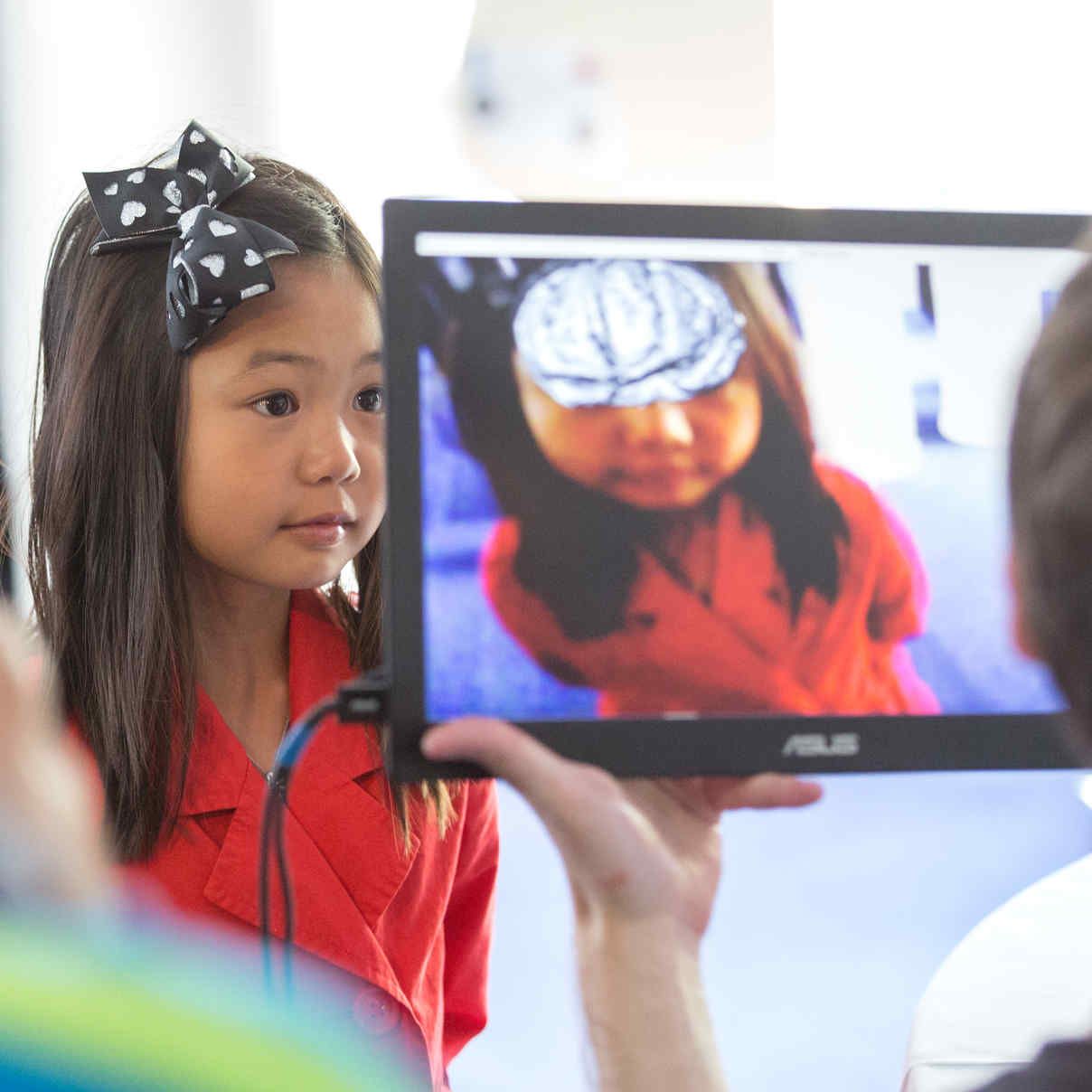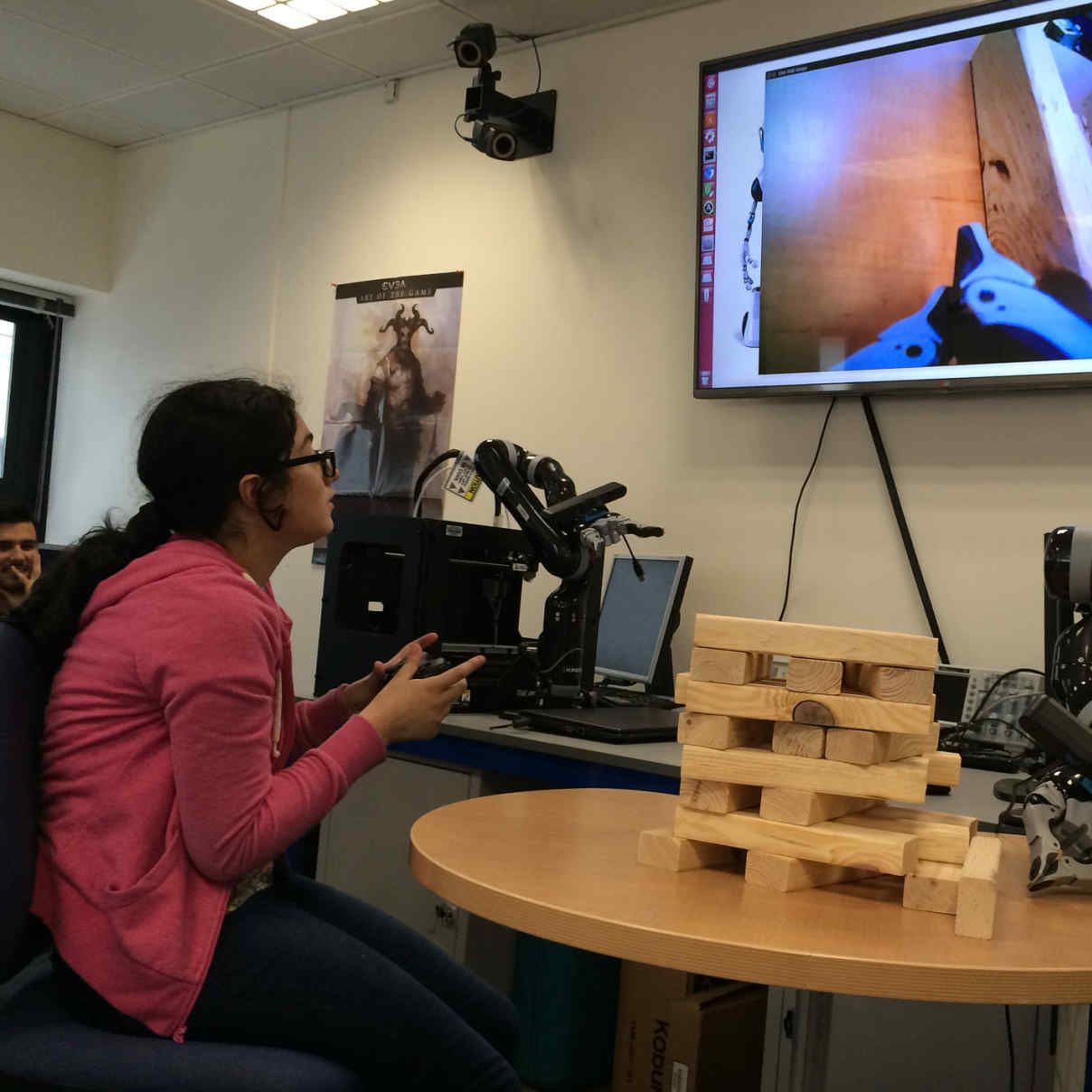At Imperial College London, we understand the importance of public engagement and enjoy nothing more than inspiring and involving the general public and school-aged children with our research.
We hope you can join us in finding out more about some of the amazing science and research that is currently happening in the world around us - check out our list of talks and register for your free ticket(s) below!
Follow us on Twitter and engage with us using #ICComputingLectures
Upcoming Lectures
Past Lectures
- Achieving Realism in Computer Graphics - by Dr Abhijeet Ghosh (April 29 2021)
- How Dark is the Forest? - by Dr Arthur Gervais (April 21 2022)
- Robot Vision - by Prof Andrew Davison (June 24 2021)
- Smart Dust - by Professor Julie McCann (June 18 2020)
- Spot the Lesion - by Dr Ben Glocker (May 27 2021)
- The Computer Girls - by Dr Maria Vigliotti (July 29 2021)
- What can I do with Computer Science? - by Dr Maria Valera Espina (April 10 2021)
 This talk provides a high-level overview of the research conducted in the Realistic Graphics and Imaging (RGI) group in the Department of Computing at Imperial College London. A central focus of our work is achieving "realistic" computer graphics where a synthetically generated imagery is indistinguishable from a photograph, or at the very least achieves a photographic quality. This has significant applications as you might imagine in entertainment applications such film visual effects (VFX for Hollywood blockbusters) and computer games which are becoming increasingly realistic. Furthermore, there are broader applications of realistic computer graphics techniques in many other areas such as augmented reality (AR) and virtual reality (VR), product design/advertising/e-commerce, architectural visualisation, digital cultural heritage, etc.
This talk provides a high-level overview of the research conducted in the Realistic Graphics and Imaging (RGI) group in the Department of Computing at Imperial College London. A central focus of our work is achieving "realistic" computer graphics where a synthetically generated imagery is indistinguishable from a photograph, or at the very least achieves a photographic quality. This has significant applications as you might imagine in entertainment applications such film visual effects (VFX for Hollywood blockbusters) and computer games which are becoming increasingly realistic. Furthermore, there are broader applications of realistic computer graphics techniques in many other areas such as augmented reality (AR) and virtual reality (VR), product design/advertising/e-commerce, architectural visualisation, digital cultural heritage, etc.
The talk will describe a typical modern pipeline for achieving "realistic" computer graphics which involves detailed modeling of the shape and appearance of a subject/object followed by an appropriate rendering process to generate a synthetic image. Here, we will describe our work on development of various measurement techniques for automatic capture and modeling of high-quality shape and appearance properties of real-world objects as well as human subjects (faces), ranging from simply employing commodity hand-held mobile devices (camera+flash) for the capture process to employing very specialized apparatus such as a Lightstage which has been extensively employed for facial capture of actors' faces for film FVX.
Venue: Online.
Permissionless blockchains such as Bitcoin have excelled at financial services. Yet, opportunistic traders extract monetary value from the mesh of decentralized finance (DeFi) smart contracts through so-called blockchain extractable value (BEV). In this talk, we quantify the USD extracted from three BEV sources, namely sandwich attacks, liquidations, and decentralized exchange arbitrage. We estimate that over 32 months, BEV yielded 540.54M USD in profit, divided among 11,289 addresses when capturing 49,691 cryptocurrencies and 60,830 on-chain markets.
This seminar is open people of all ages interested in understanding more about blockchain and cryptocurrencies.
Venue: Online
Robots have failed to match the straightforward way that humans move through their surroundings due to a lack of the same powerful but efficient visual sense, but are finally catching up fast. I work on computer vision algorithms to solve the core `Simultaneous Localisation and Mapping' (SLAM) problem of estimating the shape of the world seen by a moving camera. I will introduce the fruitful probabilistic approach we have taken, and illustrate progress with live demonstrations of landmark systems. Improvements in algorithms, alongside the continuing exponential rise in commodity computer power of our remarkable technological age, mean that visual SLAM is now becoming commercially feasible in small, low-cost devices like domestic robots and smartphones. Meanwhile, academic research in robot vision is edging towards higher level AI goals of object understanding and interaction.
Venue: Online
Suitable for all ages, particularly those with some background in computing. Learn more about Professor Davison’s research and the work of the Visual Information Processing Group: https://wp.doc.ic.ac.uk/vip/
 Professor Julie McCann takes her inspiration from nature for writing algorithms that allow distributed wireless networks to become self-organising, adaptive and intelligent.
Professor Julie McCann takes her inspiration from nature for writing algorithms that allow distributed wireless networks to become self-organising, adaptive and intelligent.
In this talk, Julie discusses how the Internet of Things (IoT), Wireless Sensing and Cyber-Physical Systems could look in 25 years time.
Suitable for all audiences, including families.
Venue: Online.
Medical images provide a detailed look into the human body, and are immensely helpful for doctors to spot signs of disease. It requires long time of training to 'read' medical images, and it's a time-consuming, error prone task. These days, doctors are faced with an immense volume of images to look at while having less and less time dedicated to their patients. Artificial intelligence, in the form of clever pattern recognition algorithms, can help doctors by automatically spotting suspicious regions in medical scans. These can be flagged up for further visual inspection or sometimes even automatically classified whether they look benign or malignant. This lecture gives an introduction into AI for medical imaging and how researchers at Imperial College are trying to develop new algorithms that can detect subtle signs of disease, helping doctors make better decisions in diagnosis, treatment and intervention.
Venue: Online
Suitable for all audiences, recommended for ages 10+
In 1967 Cosmopolitan published “The Computer Girls”, an article featuring a female system engineer at IBM, and promoting programming as a viable career for women. US data, which sets the trend for the developed economies, shows that the percentage of women working computing has dropped from 35% in the mid-eighties to 20% in recent years. Much attention has been devoted to studying the reason for this drop. The conclusion was that the first personal computers were essentially early gaming systems that firmly catered to males. While early word processing tools were also available, the marketing narrative told the story of a new device that met the needs of men. As more males began purchasing computers for personal use, the “nerdy programmer” classification began to take hold in the professional world.
In this talk we explore the history of the field of computing from a female perspective and celebrate the women who made substantial contributions to the technical development of the field. We discuss why gender balance is crucial for our society and how to reach a gender balance in the near future.
This seminar is open people of all genders interested in understanding how to reach a gender balance in computing.
Venue: Online
 Discover the fascinating world of computer science and its applications, and find out more about the history of women in computer science - a sector that women have been working in since the 18th century! You'll also find out more about the interesting computing applications and research built here in Imperial's Computing Department.
Discover the fascinating world of computer science and its applications, and find out more about the history of women in computer science - a sector that women have been working in since the 18th century! You'll also find out more about the interesting computing applications and research built here in Imperial's Computing Department.
Suitable for all audiences and aimed at families and young children (particularly girls) aged 8-11 years old.
Venue: Online.
Re-watch your favourite lecture or catch up below:

Achieving Realism in Computer Graphics
A high-level overview of the research conducted in the Realistic Graphics and Imaging (RGI) group.
Can you tell the diffeerence between a real image and one rendered by a computer? Join Dr Abhijeet Ghosh as he shares his research in achieving realistic computer graphics, such as those used in blockbuster movies, in this public lecture (27th May 2021).

Robot Vision
Learn about the algorithms needed to better estimate the shape of the world as seen by robots
In the past, robots have failed to match the straightforward way that humans move through their surroundings due to a lack of the same powerful and efficient visual sense. With recent scientific breakthroughs however, robots are catching up fast! Join Professor Davison to learn more about his research and the vision algorithms used to solve core `Simultaneous Localisation and Mapping' (SLAM) problems needed to estimate the shape of the world seen by a moving camera.

Spot the Lesion
An introduction to AI in medical imaging by Ben Glocker, Reader in Machine Learning for Imaging
This lecture gives an introduction into AI for medical imaging and how researchers at Imperial College are trying to develop new algorithms that can detect subtle signs of disease, helping doctors to make better decisions in diagnosis, treatment and intervention. Suitable for audiences aged 10+.
Contact
If you would like to know more about our outreach and public engagement,
email doc-outreach@imperial.ac.uk.



